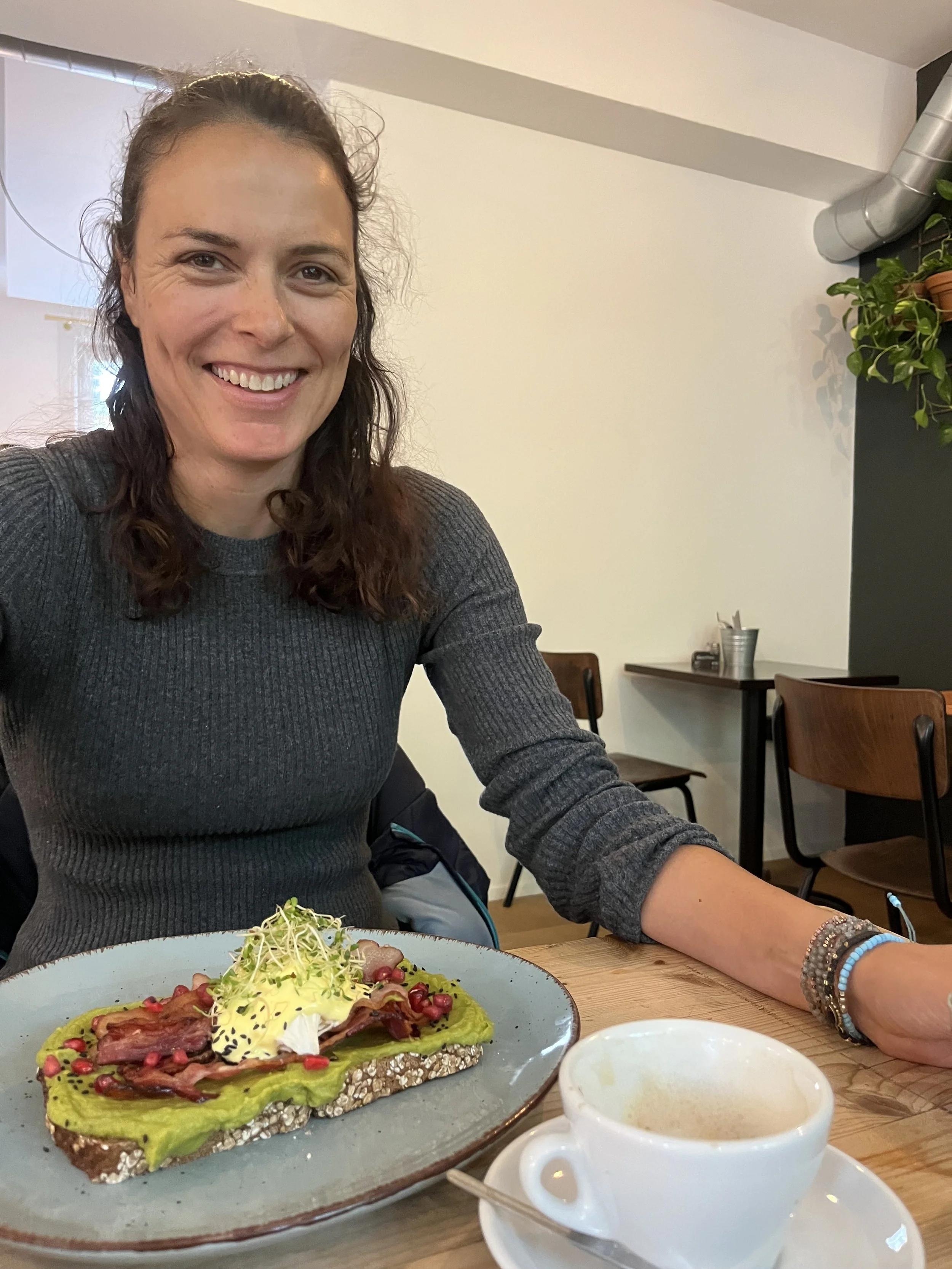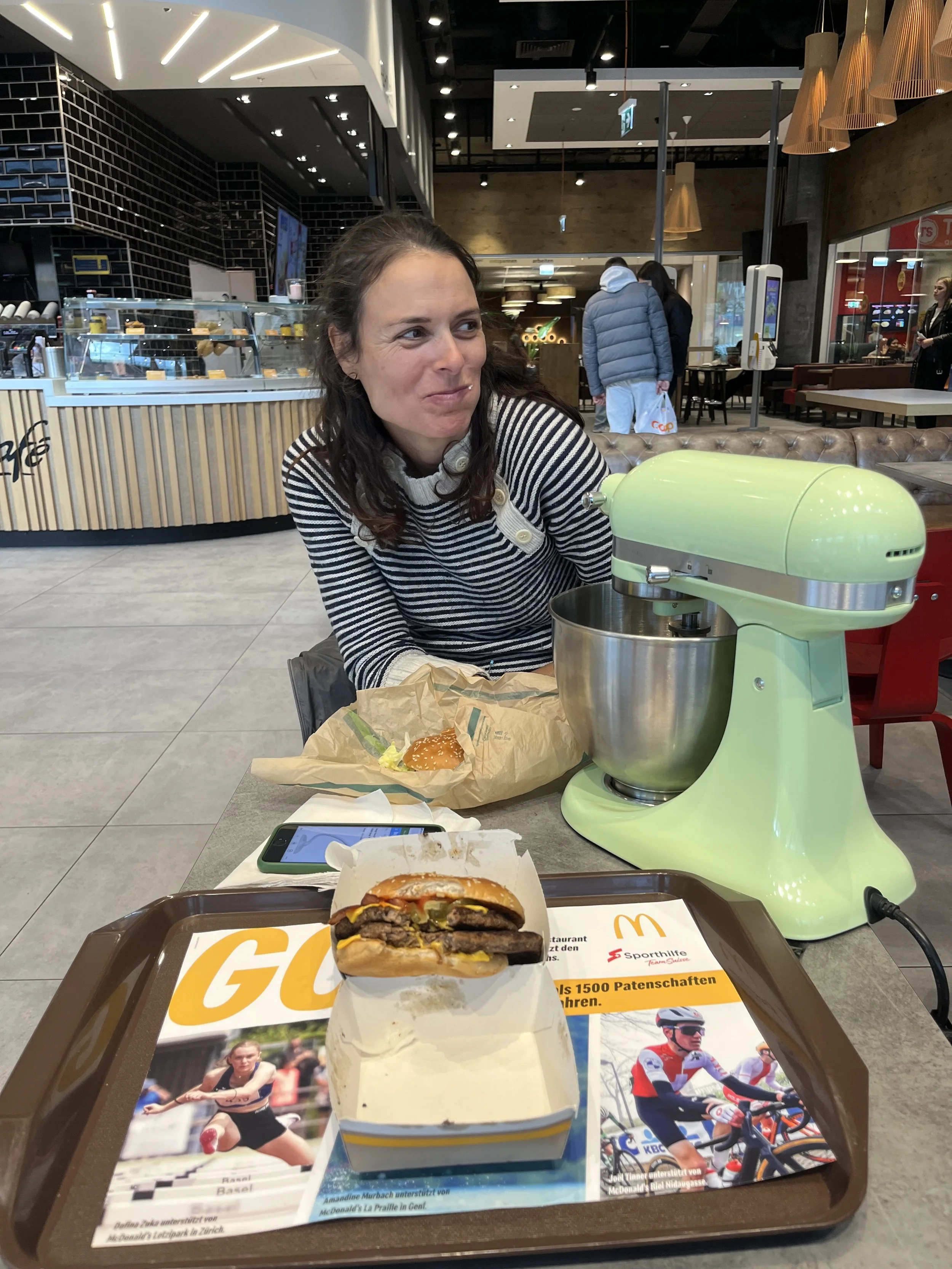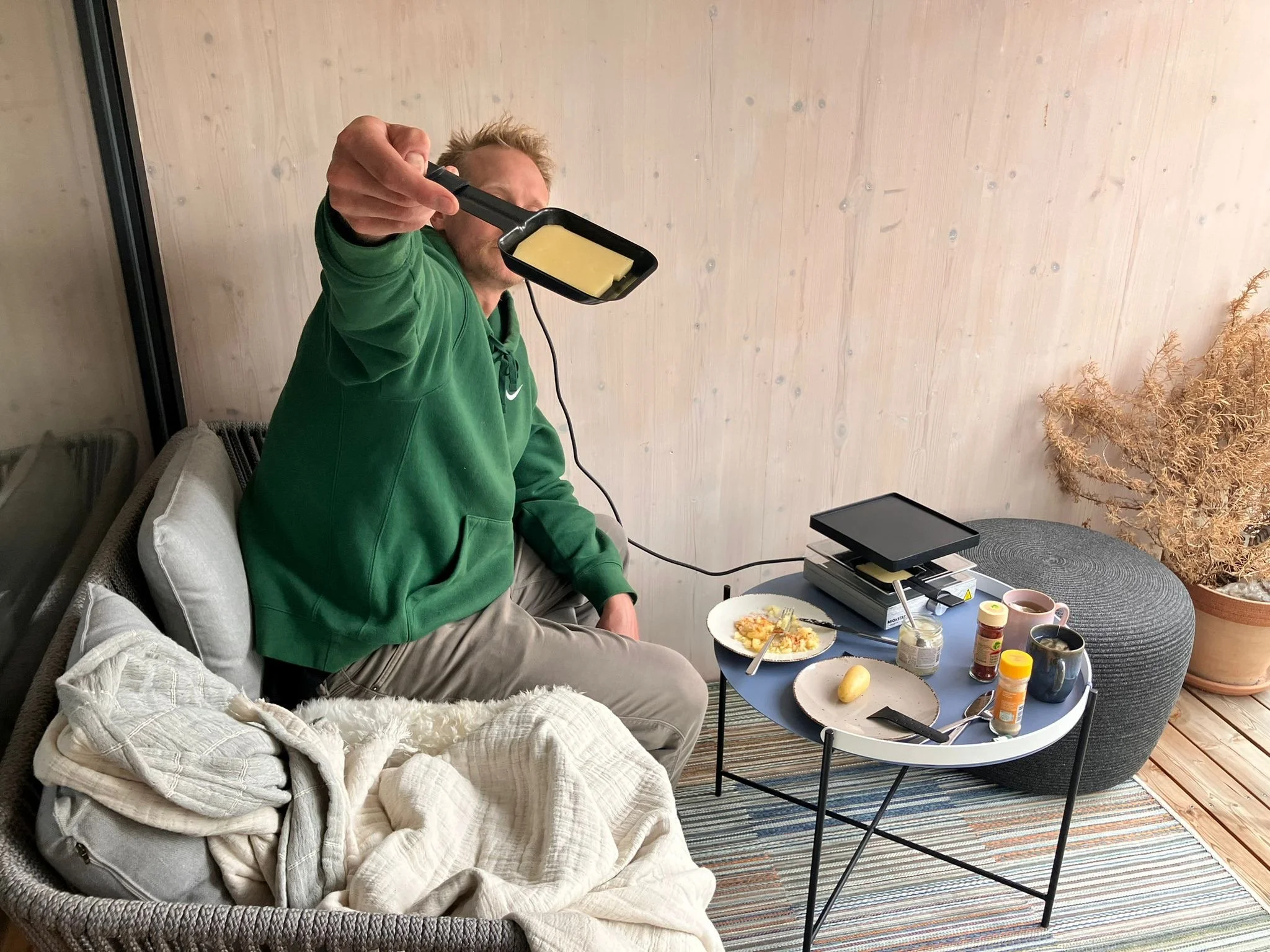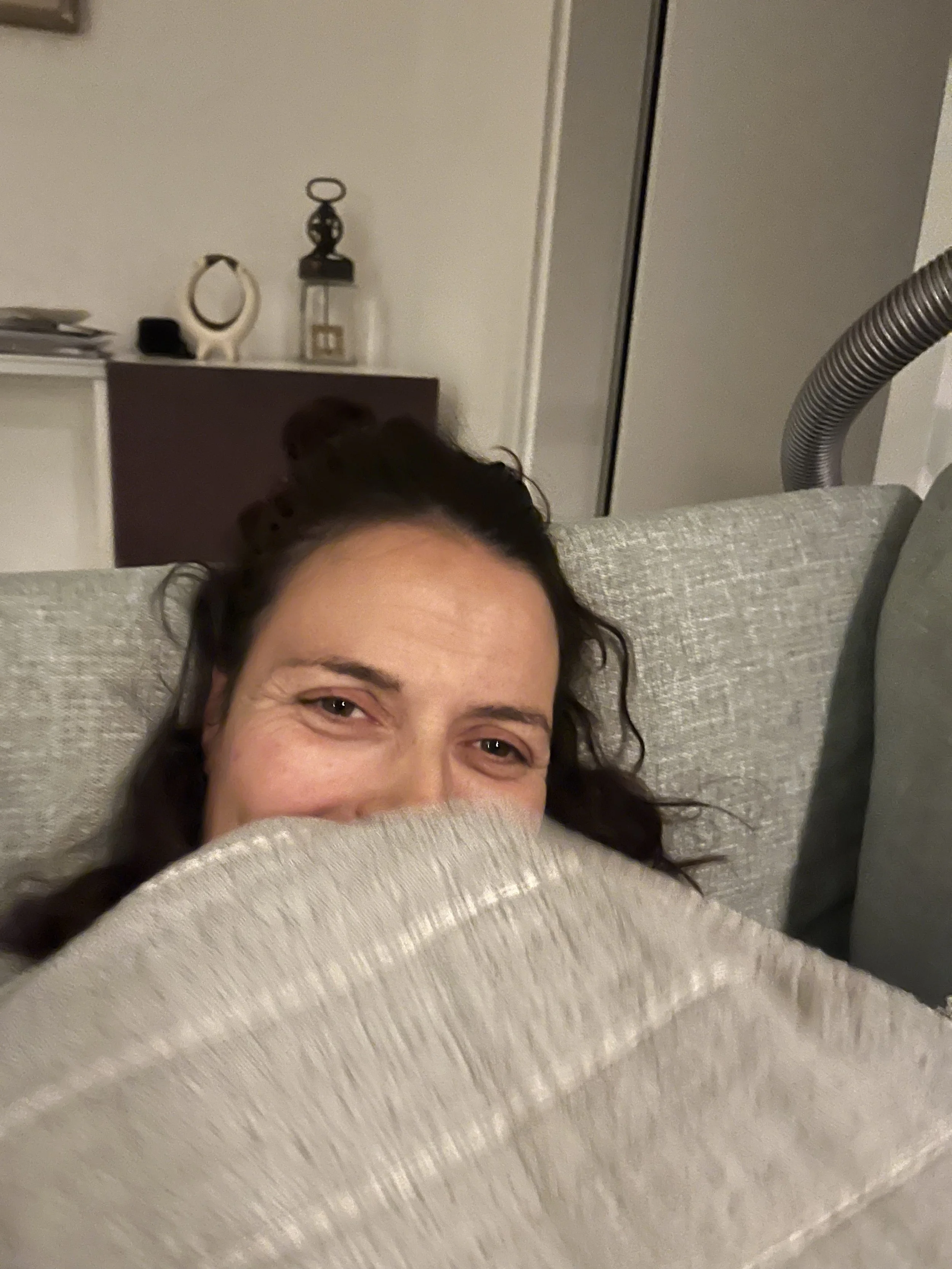
Beyond Duolingo
My Experience with German Language and Culture in Switzerland
September 12th was Nicole’s birthday and naturally, we celebrated by moving our crazy array of things into our second sublease. Yippee!! This one was a sleek, modern apartment tucked into the Breitenrain neighborhood (or Breitsch, as any proud local would call it). Amid the chaos of unpacking, we carved out space for celebration.
Our day began at Becanto, a cozy neighborhood spot that looked promising until we met its sad excuse for avocado toast. Daydreaming as we ate it how we could master the “avocado toast” ourselves for our future bed and breakfast.
Next stop: the mall, where fate handed us a sick-ass, green KitchenAid mixer for 100 bucks,(old model) a score we celebrated with a greasy ass McDonald’s lunch. Then Nadine, Nicole’s sister (a musician: Naluma), popped in with a homemade cake and helped me serenade Nicole with a heartfelt rendition of “Happy Birthday.”
As the sun dipped behind the rooftops, we melted raclette on our new porch. A slow, romantic stroll followed, hands tucked into one another’s jackets, the city quiet around us, before finally crashing on the couch for some much needed R&R.
The following day, now that life had settled down a bit, i figured the timing felt right for me to take that German course I’d been wanting to since arriving in Switzerland. Back in the States, I’d logged hours on Duolingo, but two months into living here, it was painfully clear that those little green owl sessions hadn’t taken me far. I could survive: order a beer, ask for directions, talk about the weather, nod and smile. But the second things got interesting, I stood there like dumb mute.
I took a few online placement tests, all of which shoved me into the lowest beginner category. Which frankly, i felt was a load of crockshit. My vocabulary wasn’t to shabby, i could lasso up some basic sentences, order a coffee, talk about my weekend or the weather, ask for directions, hell, i could even throw out an occasional “genau” with a confident flare. I was even starting to wrap my head around the inside-out logic of German sentence structure. Where the verb sometimes just casually chills at the end of the sentence , so you’ve got to hold everything in your head until the final word finally shows up like, “Surprise!”
Same with numbers. Take 25. In German, it’s fünf-und-zwanzig—literally “five and twenty.” (fünf und zwansk in Swiss German.) Anywhere else in the world, a number is written and understood in the same order: 2 then 5. Simple. Logical. Numbers are basically the world’s first universal language, an ancient human invention going back to Mesopotamia, where people used little clay tokens to track trade and taxes. Eventually, numerals got standardized with the Hindu-Arabic system, which, by the way, is what we all use today! (including you Germany).
But all of that was manageable. What really kept me finger painting in the corner, diaper full of shit and eyes glazed, was the grammar. That bureaucratic hellscape of articles, case endings, split words and gendered nouns.
You’ll have a word like abbeigen (to turn off), but then, out of nowhere, ab scurries to the front of the sentence and biegen gets exiled to the end. So you get Frankenstein sentences like, “Ich biege an der Ampel ab.” (“I turn at the light off.”)
In English, we’ve got one word: the. That’s it. It’s always “the table”, “the light” and “the window” In German, though? You’ve got der Tisch (masculine), die Lampe (feminine), and das Fenster (neuter). And heaven help you if you use the wrong one, because now you've just informed everyone how dumb you are.
And then there’s the possessive articles,
Top that off, you’ve got adjective endings that change depending on gender, number, and case (ein schöner Tag, eines schönen Tages, dem schönen Tag).
Yet despite all my bitching, about how German feels uptight, overly structured, even hostile. How it feels like every sentence requires an FBI background check, asking not just what you're saying, but who said it, which direction they were walking, how the noun identifies that day, and what mood the verb rolled out of bed in, I have to admit: German has range. Coming from English, where you might have to describe which burger you want with a few sentences, you may be able to get away with just one in German. Because it’s built for precision. Inflected languages like German (or Latin or Russian) let you sculpt meaning with nuance, embedding how, why, to whom, and in what context something is happening, all within the grammar.
Someone once told me English is like a piano—press a key, and you get a clear, consistent note. German? It’s more like a violin. You don’t just hit the note, you shape it. With pressure, angle, and timing, you infuse it with feeling. There's more bandwidth for expression, if you’ve got the patience to tune the damn strings.
However me? I wasn’t looking to teach German literature. I just wanted to talk, to get through a basic conversation even if i sound like an idiot, if who im talking to really knows german, they'll figure out what im trying to say. But those placement tests didn’t care. If you didn’t know your articles, cases, and endings, congrats, you’re a Level One. End of story.
I even had nicole help me, (which defeats the purpose of a placement test) and still ended up a level 1. Those placement tests, if i met one in person, would place that ment right up it’s ass. How’s that for placement, die bitch. I don’t give a rat’s ass about being grammatically correct, I just wanted to talk, not teach German Literature for gods sakes.
I mean, take a moment and swim out to the deep end with me, to define something is to confine it. We take a sound, a grunt, a vibration from our vocal cords, and we say, “This noise means this thing.” And then we all have to play along. Sure, I get it. We need some structure, some agreed-upon meaning to function as a society. Otherwise, it’s just chaos. But let’s not pretend it’s sacred. I mean, ole Trumpy poo could sign a law tomorrow saying “male” now means “female” and “potato” means “tomato,” and if enough people accepted it, guess what? It would be true. That’s language. It’s a shared illusion, nothing more.
But I digress…
After bombing every placement test on every website, I decided to try out a class at Alemania, a budget-friendly language school in Switzerland. I sat in on an A1.2 course, well above my comprehension level. Unsurprisingly, I didn’t learn a damn thing. But a kind woman next to me leaned over and whispered, “Save your money. Just jump to the A1.3 course. You’ll be fine.” I thought, hell, when life tells you you’re ready, buckle up cowboy!
So i enrolled in that A1.3 German course at Alemania and you know what? It was way over my head, i was in Lambeau field carrying around a baseball bat wondering where home plate was. The pace was merciless. Every single day, monday-friday at 1:30, was a new chapter, new grammar structures, new vocabulary, and if you didn’t get it? Tough shit sherlock.
Since i didn't understand shit, i had plenty of time to take in my classmates and get to know them, namely, my classmate to the right of me, that same girl that invited, or, challenged me to take the a.1.3 course. She turned and asked to me in english "What brought you to Switzerland?" I replied, "Love, My wife is Swiss, and after spending 14 years in the United States, we moved here so she could reconnect with her family.”
Curious, I asked her the same question.
"I'm from Ethiopia," she said. "I had to come here because of the Tigray war. So, I'm not here for love."
Her words landed with a silence I didn’t know how to fill. My dumbass barely knew anything about Ethiopia, some fast runners and a vague idea that it was in Africa, maybe? Here i am, all hunkie-dory, chose to come here, got my own apartment, from the land of liberty and justice for all, ignorant of anything outside of its red white and blue borders. I was embarrassed, feelings like a cold turd and didn’t dare press her further. That night, when I got home, I looked it up.
The Tigray war began in late 2020, when tensions between Ethiopia’s federal government and the Tigray People’s Liberation Front exploded into a brutal conflict. What started as a political power struggle quickly became a humanitarian disaster—mass killings, sexual violence, famine, and mass displacement. Millions were forced to flee, especially from the Tigray region, caught between federal troops, regional militias, and foreign forces. For people like my classmate, coming to Switzerland wasn’t a choice, it was escape, perhaps even survival.
She wasn’t just some expat brushing up for work, but rather a refugee, an asylum seeker meeting state-mandated requirements. It grounded my own story of relocation in a more sobering context. I mean imagine if that happened in the states and you had to flee, leaving behind your house, family and friends and start over in a new country, given provisional admission with strings attached. And if you didn’t jump through the various integrational hoops, such as language acquisition, i.e. the reason she was sitting next to me, you could risk getting pushed off to another foreign world and start all over once again.
As the classes went on, I started to see the true nature of Alemania: a well-oiled bureaucratic machine, clinging to a rigid curriculum with no room for flexibility. The structure felt eerily familiar to the public school system back in the states: standardized assessments, a focus on progression over comprehension and a system more concerned with checking boxes than cultivating understanding. I’m sure Alemania began with good intentions, an earnest desire to help people learn, but once the government’s immigration sector waved that fat check in front of them, subsidies tailored to institutions that offered language courses to refugees, asylum seekers, or migrants as part of integration programs, things shifted. Success was no longer about fostering real learning, but about churning through students, getting them through weekly tests, and moving them up to the next level. It became a numbers game, a way to demonstrate progress to secure more funding. The drive to keep the machine running smoothly left little room for the genuine, adaptive teaching that students needed to actually learn the language.
And the poor teacher, bless her heart, I could see the pain in her eyes. She wanted to help, to slow things down, to actually teach, but her hands were tied by the school’s rigid curriculum. She offered encouragement and the occasional clarification where she could, but it was clear: no one was truly keeping up, and few had a shot at passing the exams without her basically walking them through it. Still, if she wanted to keep her job and her paycheck, there wasn’t much she could do.





